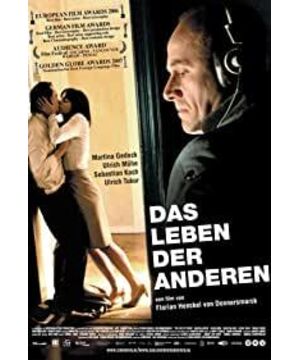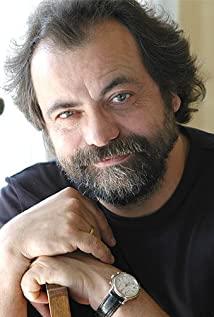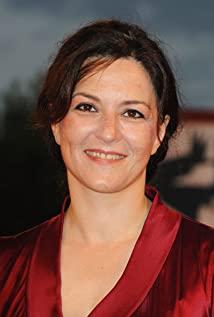In my mind, my grandmother is a fat and short old lady, standing a little higher than my waist. I used to like to play with her flabby arms, like a curtain, and when I fiddled with them, I could tremble for a long time. I am one of her favorite grandchildren, because I grew up with her and caused her troubles a lot. The example that my uncle gave me is that during the Cultural Revolution, my grandmother and grandfather were scolded for a fight, with a sign hanging around their necks, and they had to toss for a whole afternoon with a carload of comrades. The family is very worried. Unexpectedly, this uncle met his grandfather and grandmother on the road. Two people are sitting on the sidewalk eating watermelon. It's too hot to think about anything else. Grandma bought half of the watermelon with grandpa. It was exactly the same grandma I remember: she was never very angry about anything, and she was not angry for more than three minutes. Later, after the Cultural Revolution, my grandfather became ill because he could not get a good rehabilitative treatment, and later died very early. Grandma lived many years. She's got a little childish in her old age, but I've never been mad at her. When she was upset, I fiddled with the flesh on her arm and she laughed.
An American friend I met while traveling in Czechoslovakia the other day came to London. He lives in New York and somehow found a Polish girlfriend in London. We decided to go to the movies together. No problem choosing the German film "Other People's Lives" (director: Florian Henckel von Donnersmarck). To be honest, I don't really like watching German movies. Ever since a German classmate invited me to watch "Lily Marleen", every time I watch a German movie, I always feel that Germans are holding their shoulders when they are acting, a little bit. Posing, just can't relax. Later, I heard that it was about the "Cultural Revolution" in East Germany. Considering that there was also a Polish lady, I decided to watch it together.
The movie is at Curzon in Soho. A small theater dedicated to foreign films, especially European films. American friends have been to London, but this is the first time to see a movie in London. He looked around like a child, and felt that the pubs in the cinema were very tasty. He didn't understand how the British could understand a movie after drinking so much alcohol before watching a movie. His Polish girlfriend is confident and talkative. I had thought about a few things about Poland before we met, thinking it would make her happy. I soon realised that you would offend her by saying how good Poland is. Her words were full of contempt for Poland and full of admiration for Western European petty bourgeoisie. I reckon she hasn't been in London long yet. Similar to several Eastern European women I have met, she likes to explain simple issues very complicated, and talking without philosophical theories is like eating without food and steamed buns, and cannot be full. The two went to a French restaurant for dinner. The girlfriend obviously wanted to have an elegant dinner, but unfortunately she hadn't learned to find a restaurant. The British-French cuisine at that restaurant was beyond her imagination. She chattered about French dishes, what they should be, and what they were. The man said, who knows, maybe there is such a place in France. Unfortunately, the movie starts and we only talk about the main course, we don't know if the dessert is authentic.
The movie is about Ulrich Mühe, a tech-savvy secret police intelligence officer loyal to the party and the government in the former East Germany in the 1980s, who was spiritually polluted in the process of monitoring the playwright Sebastian, discovered his conscience, took the initiative to protect the writer, and finally himself The story of being exposed and being sent down through labor camps.
This film gave me a new understanding of Germany, especially the former East German films. How should I put it, the characters' psychological depiction is very detailed, and the plot is tense. After reading it, you will not feel that the Cultural Revolution in East Germany was just a farce, and his damage to people's psychology is more severe than the damage to the body. But even in such a state, people's conscience can still struggle to survive.
There are two episodes that surprised me: one is that the secret police searched the house, they didn't arrest the evidence they were looking for, and they also offered to provide financial compensation to the searched person. The other is that after the "Cultural Revolution" in East Germany, ordinary people could go to the archives to check all the materials, including all the records that were monitored at that time.
The ending of the movie is very touching, so I won't talk about it, otherwise you won't be able to watch it. Coming out of the movie theater, my American friends didn't seem to know how to react. His Polish girlfriend said, 'I can't do it, I need to get out and get some fresh air. We all followed her out on a sprint. It was late outside, and the Polish girl looked up at the sky for a while, I guess she might have shed tears in the cinema just now. She turned around and said: Hey, can there be a more sad friend gathering than this?
Indeed, we seem to be at a loss for words. No problem asking how she compares to Poland? She fanned her hands in front of her and said, "Oh, don't mention it. An American friend said, I seem to think that the literati Gu Ying feels self-pity, this writer should be considered protected, and he still feels unbearable, so how can others live? I said, this movie may be more psychological than violence, in fact, it makes people sleepless than violence. Seeing the way the Polish girl was still suffering, I said: Then again (hehe), this is far worse than the Chinese Cultural Revolution. The three of them turned their heads together to look at me with a sudden realization. By the way, I almost forgot, the Chinese have also experienced this.
For the Cultural Revolution, I basically have no memory, I was too young at that time. My grandmother and grandfather never told me much about the Cultural Revolution. I heard stories about the Cultural Revolution from my parents’ generation. During the Cultural Revolution, my parents were only affected by the older generation, and what they experienced was more of an unfair opportunity. Some of the children of the grandparents cut off their relationship with them, and some exposed them behind their backs. For them, this blow may have hurt more than the Cultural Revolution itself, but my grandmother never told me these words. But when I think about it, I get angry for my grandmother, so I've been annoying those sane guys for years, even though my grandmother has long since forgiven them. The only thing that the Cultural Revolution gave me was that my parents' mental depression broke out from time to time, and they would quarrel at every turn. At that time, I liked to sneak to my grandmother's house after school, and I didn't want to leave if I made excuses. She was the haven of my childhood, and what I felt was peace. She never got mad at me and never spoke loudly. What I remember best is the moment when I found out that I was taller than her, and she was happier than I was. The taller I grow, the more I like to dig under her broad arms, because I like the soft curtain of flesh under her arms. It's still a little cold in summer, and I can shiver for a long time with a touch.
View more about The Lives of Others reviews









